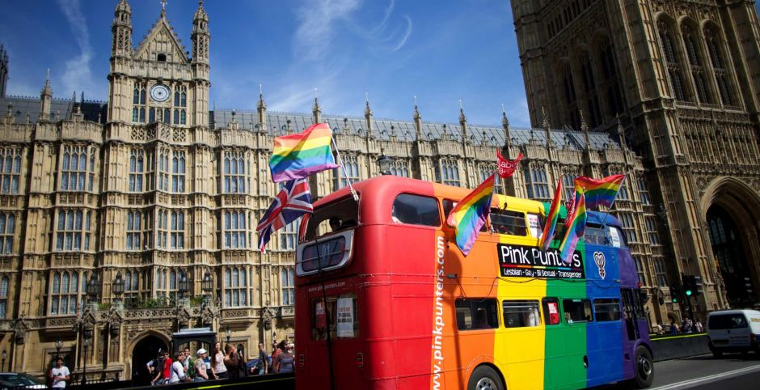After same-sex marriage, then what?
By Michael Cook
http://www.mercatornet.com/conjugality/view/15908
March 31, 2015
March 29 marked the first anniversary of the legal same-sex marriage in England and Wales. Look around, say the twitterati -- no plagues of locusts and frogs have blighted the land; no fire and brimstone have rained down upon Westminster; no earthquake has swallowed up Sir Elton. All is well.
Well, actually not.
In an article in The Conversation, an academic at the University of Kent, Dr Mike Thomas, reported on how happy gay couples in the UK, the United States and Canada feel after tying the knot. He found that most of them welcomed the benefits that legal recognition of their relationship gave them.
But this was not matched by social recognition. Even though the majesty of the law shone upon them, relatives often shunned them and snubbed them.
For many couples, the wedding or civil partnership ceremony was a more bittersweet occasion, bringing difficult family relationships to a head -- and reminding same-sex couples that despite their new legal status, they could not necessarily expect to be treated as equals.
Relatives often had few qualms about refusing to attend a ceremony; one couple's same-sex wedding was boycotted by the entire family. The idea of a same-sex relationship may have been just about tolerable in some families, but being asked to turn up at the town hall and look like they were enjoying themselves was often too much to stomach.
A very positive milestone in a new couple's life often turned out to be surrounded by bitterness and rejection. "Negative reactions were a surprisingly regular feature of the research interviews, giving rise to complex emotions, including anger, resentment and a sense of despair about the prospects for achieving equality," Dr Thomas reports.
This complaint is ominous for those who have watched the juggernaut of same-sex marriage roll across its opponents. What is the ultimate purpose of same-sex marriage? Supporters of "marriage equality" contend that it is simply access to the same rights as other married couples, without any discrimination. Equality means equality of opportunity in parenting, employment, in exercising civil rights and before the law.
But the implication of Dr Thomas's research is that many gays and lesbians believe that legal same-sex marriage ought to confer a right to be welcomed and cherished. He concludes that "Legal reform only takes us so far; it's usually one of the first steps towards real equality, but it's certainly not the final one. So one year on, we should raise a glass to same-sex marriage, but not lose sight of the challenges that lie ahead in delivering meaningful, day-to-day equality."
What is implied by this "meaningful, day-to-day equality"? That relatives, neighbours and colleagues must extend warm congratulations and shower gay and lesbian couples with best wishes and toothy smiles?
Dr Thomas's research is a bit unsettling if it suggests that gays and lesbians are expecting even more than the legalization of same-sex marriage.
Law in a democracy has limits. It is not a remedy for lack of self-esteem. It cannot force your relatives to attend your wedding or your neighbours to invite you over for a barbeque. It cannot make people like you; it cannot stop people from scowling at you. Only in North Korea does the law compel you to love the Dear Leader and to laugh at his jokes.
Same-sex marriage is controversial enough. But a debate over enforcing "meaningful, day-to-day equality" after same-sex marriage is legalized could be even more traumatic.
END














